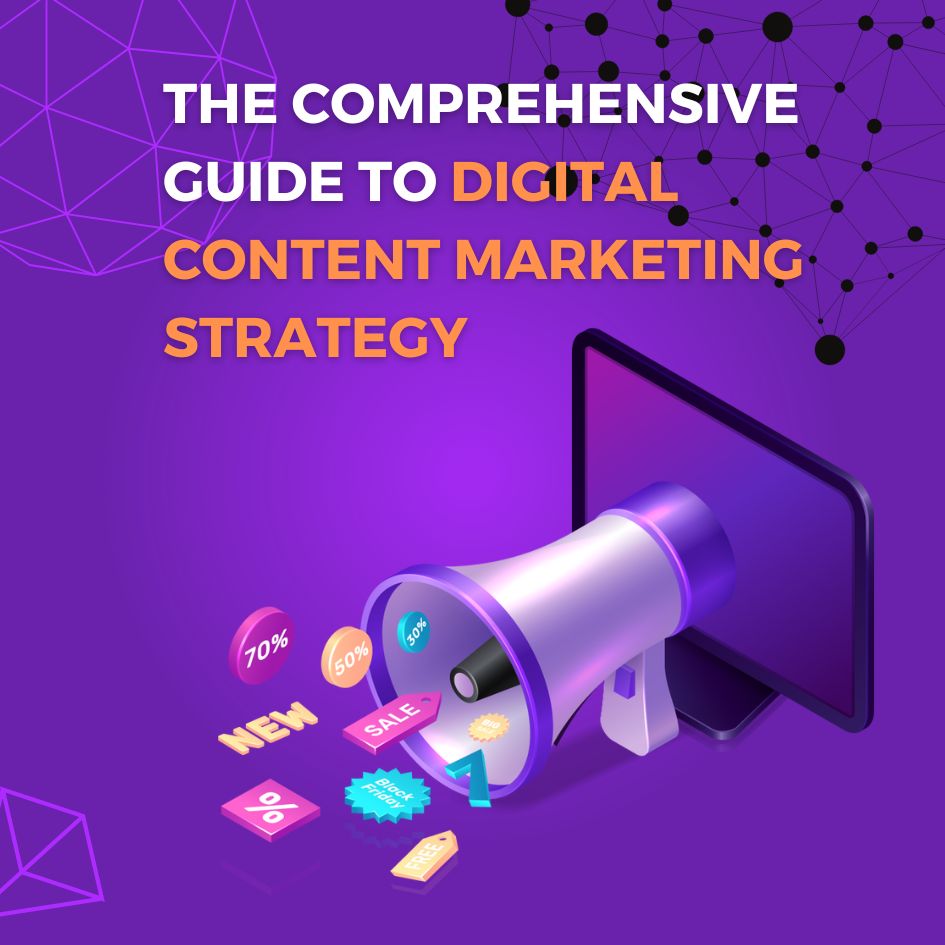The Comprehensive Guide to Digital Content Marketing Strategy
Reach the Top of Search Results with Amazing SEO Digital.
CONTENT MARKETING
Unlocking Success: The Ultimate Handbook for Digital Content Marketing Strategy

1. Introduction to Digital Content Marketing
Imagine this: you’re a skilled archer. Each arrow you have represents a piece of content. The target? That’s your audience. Now, suppose you’re randomly shooting arrows without an aim. They’re sharp, they’re fast, they’re powerful – but without a proper aim, they’re utterly pointless. This is where your digital content marketing strategy comes in. Just like an archer, you need a well-defined plan to hit your target audience.
Believe it or not, the online world has witnessed a massive surge in demand for strategic content creation. Gone are the days when a few catchy phrases or an eye-catching image could lure your customers. The modern internet-savvy customer demands more – more information, more engagement, and more authenticity.
This upsurge isn’t surprising; after all, digital content marketing strategy is the new norm. Businesses, big or small, are all vying for that top sweet spot in search engine results. The sheer magnitude of competition is fierce, my friend.
Yet, all hope is not lost. By harnessing the power of digital content marketing strategy, we can pave a successful path in this digital jungle. And this guide will serve as your trusted map.
2. Understanding Digital Content Marketing and SEO
What is digital content marketing, you ask? Well, picture this: you’re at a party. Traditional marketing would be like that person always bragging about how great they are. Digital content marketing, on the other hand, would be the charming storyteller, mesmerizing everyone with their tales and wit.
Digital content marketing is all about creating and distributing valuable, relevant, and consistent content to attract and engage a well-defined audience. The aim? Drive profitable customer action. Now, where does SEO fit in all this? Ah, great question!
When you’re creating content, you don’t just want it to be great. You want it to be found, too. This is where SEO, or search engine optimization, plays a critical role. It’s the fine art of optimizing your content so that a search engine likes to show it as a top result for searches of a certain keyword. And trust me, mastering this art is necessary to win this digital game.
Remember, SEO isn’t just about search engines. It’s about understanding what people are searching for online, the answers they seek, the words they’re using, and the type of content they wish to consume. Fulfilling these user needs will help you connect with your potential customers like nothing else.
Are you ready to move forward in crafting your digital content marketing strategy? Let me know, and we’ll step into the exciting world of strategic planning!
Fantastic! Let’s delve into creating your digital content marketing strategy.
3. Crafting Your Digital Content Marketing Strategy
Every great journey begins with a single step. Likewise, every great content strategy starts with understanding your target audience. You know, there was a time when I thought creating great content was all about putting together snazzy words and catchy phrases. Oh, how naive I was! True quality content speaks directly to your potential customers. It addresses their pain points, answers their questions, and offers solutions.
The next piece of the puzzle is determining the type of content that will resonate with your audience. Will your audience appreciate a comprehensive infographic, or would they rather consume a quick video? Maybe a podcast episode during their commute is their preference? Always remember the type of content you create is just as important as the content itself.
Once you’ve nailed down the type of content, it’s time to put your marketing plan into action. This involves content creation, optimization, and promotion. Each of these elements needs to work harmoniously to create a symphony of success. The key here is to keep experimenting, learning, and improving.
Also, an often overlooked yet crucial element is SEO, especially keyword research. Now, this might feel like searching for a needle in a haystack. Trust me. I’ve been there. But, like any skill, with practice, it gets easier. It helps you understand what terms your target audience uses and what kind of content they’re seeking.
Another important aspect is the content calendar. Think of it as your roadmap. It guides your marketing efforts by planning when and where you’ll publish upcoming content. As my granny always said, “Failing to plan is planning to fail.”
Lastly, always measure and analyze your results. Look for trends. What worked? What fell flat? This ongoing analysis will provide valuable insights for future strategy planning.
Remember, just like Rome wasn’t built in a day, your digital content strategy won’t take shape overnight. It requires patience, consistency, and relentless learning.
Now, before we delve into the various types of content for digital marketing, let me know if you’re ready for the next chapter. We’re just starting to scratch the surface, and there’s so much more to explore!
Alright! Let’s dive into the exciting world of content types.
4. Examining Types of Content for Digital Marketing
Have you ever been to a buffet? You know, the kind where there’s an array of dishes, and you don’t know where to start? That’s precisely what choosing the right type of content for your digital marketing strategy can feel like.
Let’s start with blogs. They’re like the old faithful of content marketing. They are perfect for sharing insights, thought leadership, and in-depth information. I remember writing my first blog. It was about travel, my biggest passion. The engagement and feedback I received were overwhelming! People were not just reading but also sharing and commenting. It was my first taste of the power of great content.
Then we have infographics. These are your visual powerhouses. They take complex data and present it in an understandable and visually appealing format. Think of them as the superheroes of content, breaking down complex data walls with a single glance.
Next up is video content. With the rise of platforms like YouTube and TikTok, video content has seen exponential growth. Did you know that by 2022, online videos will make up more than 82% of all consumer internet traffic — 15 times higher than it was in 2017? Astonishing, right?
Let’s not forget email marketing. Ah, good old emails. They are the reliable workhorses of the digital marketing world. They might not be flashy or trendy, but they deliver results. And isn’t that what we all want?
Now, ever heard of podcasts? They’re like the cool kids on the block. Podcasts have seen tremendous growth in recent years and can be a unique way to connect with your audience.
Social media posts, eBooks, webinars, and the list goes on. The point is there are many different types of content out there. The trick is to figure out what your audience likes and create content accordingly. It’s like being a chef and cooking up the perfect dish that your customer loves every single time.
Now that we’ve had a detailed examination of content types used in digital marketing it’s time to ask, are you ready to explore the essential marketing tools for content creation?
Perfect! Let’s explore the toolbox that’ll help us create stellar content.
5. Essential Marketing Tools for Content Creation
I remember my first time painting a picture. I had a canvas, some paint, and a lot of enthusiasm. But without the right brushes, my artistic vision was, well, a colorful blob. Creating content is much the same. You need the right marketing tools for your vision to come alive.
One of the first tools you might want to look into is keyword research tools. Tools like Google’s Keyword Planner or SEMrush can help you identify popular search terms related to your business. This can guide you in creating content that your audience is actively searching for.
For creating visually appealing infographics, tools like Canva or Piktochart come in handy. They have easy-to-use interfaces and a variety of templates to create professional-looking infographics in no time.
When it comes to email marketing, tools like MailChimp or Constant Contact can be life savers. They allow you to manage your email list, create professional-looking emails, and track your campaign’s success.
For social media management, tools like Hootsuite and Buffer can streamline the process. They allow you to schedule posts, track performance, and manage all your social media accounts from one place.
Then there are tools for content optimization like Yoast SEO or Rank Math. They can guide you in optimizing your content for search engine visibility.
And let’s not forget about tools for analytics like Google Analytics. Understanding how your content is performing is crucial to refining your strategy and measuring success.
One word of advice – don’t get overwhelmed by the sheer number of tools available. Choose what suits your needs the best. You don’t need to have a tool for everything. Remember, a tool is only as good as the person who wields it.
Ready for the next stage of the journey? We’ll explore the art of creating content that stands out. Let me know when you’re ready to jump in!
Brilliant! Let’s navigate the art of creating stand-out content.
6. How to Create Content That Stands Out
I remember my first public speaking event. The room was packed, and all eyes were on me. Was I nervous? You bet. But I knew I had a story to share, a story that mattered. Similarly, when you create content, you are sharing a story with the world. A story that can inform, engage, inspire, and more.
One of the most crucial aspects of creating engaging content is understanding your audience. Remember, you’re not just trying to create good content; you’re trying to create content that resonates with your audience. You have to understand their needs, preferences, their pain points and then create content that addresses these factors.
Next, make sure your content is valuable and relevant. I can’t stress this enough – quality content is king! It’s not enough to create content that is well-written or visually appealing. It needs to add value to your audience. It needs to answer their questions, solve their problems, or provide them with the information they’re seeking.
Now, let’s talk about consistency. Think about your favorite TV show. Why do you keep going back to it? One reason is the consistency in the quality of content. Your audience should know that they can count on you to deliver great content consistently.
Remember, it’s not just about what you say but how you say it. The tone, style, and voice of your content play a crucial role in how your message is received.
Let’s consider the case of Dollar Shave Club, a grooming brand. They launched a video ad that was humorous and unconventional. It resonated with their audience and went viral, resulting in a significant boost in sales. They understood their audience, delivered value, and presented it in a fun and engaging way.
In conclusion, to create stand-out content, you need to understand your audience, deliver value, be consistent, and present your content in a unique and engaging way.
Now, before we wrap up, let’s revisit all that we have covered in our journey and encapsulate the essential takeaways. Ready for it? Let’s move to the conclusion.
Fantastic! Let’s bring it all together.
7. Conclusion: Key Takeaways from the Digital Content Strategy Guide
So, we’ve journeyed together through the realm of digital content marketing strategy, shared stories, and discovered some valuable insights. Here’s a quick recap:
- Understanding your target audience is the cornerstone of any digital marketing strategy.
- Choose the right type of content based on your audience’s preferences.
- Use the right marketing tools to assist your content creation and marketing efforts.
- Creating great content isn’t just about good writing or attractive visuals; it’s about delivering value to your audience consistently.
- Lastly, keep learning, experimenting, and refining your strategy.
Digital content marketing is a dynamic field. What works today might not work tomorrow. So keep your eyes and ears open, stay curious, and never stop learning. Remember, it’s not about the destination but the journey. And I’m glad we could share this journey together.
So, whether you’re a seasoned content marketer or starting to use digital marketing, I hope you’ve found value in this comprehensive guide. Until next time, keep creating and keep sharing your unique stories with the world.
Let’s connect on LinkedIn and meet again soon for another engaging exploration into the world of digital marketing.
Frequently Asked Questions (FAQ): Understanding Digital Content and Marketing
1. What is considered digital content?
Digital content refers to any information that is published or consumed in a digital format. This can encompass a broad range of forms – written content like blogs, articles, and social media posts; visual content such as infographics, videos, and images; and even interactive content like quizzes, surveys, or games. Remember, the first thing you need to consider is creating valuable content that resonates with your broader audience.
2. What is digital content marketing?
Digital content marketing is a marketing technique used to create, publish, and distribute relevant, high-quality content to attract and engage a targeted audience online. The end goal is to drive profitable customer actions – conversions, sales, or brand awareness. Many content marketing efforts focus on consistently delivering valuable information to consumers, which in turn helps build trust and credibility.
3. What is a digital content strategy?
A digital content strategy outlines the planning, creation, delivery, and management of content. It’s a roadmap that guides your content marketing efforts and ensures your content is structured, consistent, and aligned with your business goals. A well-thought-out strategy will include an audit of your existing content, understanding your audience’s needs, setting your objectives, creating a content calendar, and methods to measure your progress.
4. Is content writing part of digital marketing?
Absolutely! Content writing is a significant part of digital marketing. It’s the vehicle that carries your message to your audience. Effective content writing is about crafting content pieces that resonate with your audience, answer their questions, and inspire them to take action. Remember, the goal is to create a better user experience and drive organic web traffic to your site.
5. How to create digital marketing content?
Creating digital marketing content starts with understanding your audience and their needs. Identify the types of content that resonate with them – blogs, videos, infographics, etc. Next, plan your content with a calendar detailing what to publish and when. Then, create high-quality, relevant content that adds value to your audience. Finally, distribute your content across the right channels – social media platforms, email, your website, etc.
6. What is content marketing in digital marketing?
Content marketing is a subset of digital marketing. It focuses on creating and sharing valuable content to attract and retain an audience, ultimately leading to customer conversion. Whether you’re creating infographics, videos, blogs, or social shares, the aim is to engage the reader, build a relationship, and subtly guide them towards making a purchase or subscribing to a service.
7. Why is digital media marketing important?
Digital media marketing is critical for reaching and engaging with your target audience online. It offers numerous benefits, such as building brand awareness, increasing traffic to your website, and fostering relationships with customers. Plus, with digital marketing, you can reach a large, global audience, measure the effectiveness of your campaigns, and easily adjust strategies based on the results.
8. Can you provide a digital content strategy example? (continued)
Sure! Let’s imagine a clothing brand that wants to increase its online sales. Their digital content strategy could involve creating blog posts about fashion tips and how to style their clothing, sharing customer testimonials and photos on social media, and sending out personalized email newsletters with special offers. They might also collaborate with influencers to reach more potential customers. All these activities will be scheduled in a content calendar, with regular check-ins to measure the effectiveness of their strategy and adjust as necessary.
Remember, a solid digital content strategy is crucial for your content marketing and digital marketing success. It’s about more than just churning out content – it’s about creating content that adds value, resonates with your audience, and aligns with your business goals.
A well-crafted digital content marketing plan takes into account not just what you’re going to create but why you’re creating it, who it’s for, where you’ll share it, and how it will contribute to your overall business objectives. Whether you’re aiming to generate leads, increase your social following, or boost online sales, your content should always be working towards these goals.
Remember that old content isn’t necessarily bad content. An important part of any digital content strategy involves performing a content audit to identify which pieces of existing content are still valuable and which ones might need a bit of a facelift. Even older pieces of content can be optimized and repurposed to fit into your current content strategy.
Finally, always be prepared to adapt and evolve your strategy to meet the changing needs and behaviors of your audience. As a content marketer, your job isn’t just to create content – it’s to create meaningful connections with your audience through that content. By focusing on delivering value and staying authentic, you can use digital content marketing to build lasting relationships and drive real results for your business.
Boost Your Online Visibility with Our Expert SEO Services
Improve your Google search rankings and discover new consumers with the aid of our professional staff. Don't pass up your chance for internet success. We can help you get more targeted visitors to your website if you get in touch with us now to find out more about our search engine optimization services.


